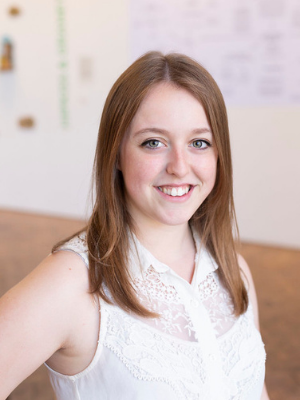Samantha Ford – PhD English Language and Applied Linguistics
Midlands4Cities funded PhD English Language and Applied Linguistics student Samantha Ford has been researching the use of metaphor in the creative context of advertising, working with the Big Cat Advertising Agency as part of her project. We found out more about her experience studying in the Department of English Language and Linguistics.
 Why did you choose to study for a PhD in English Language and Linguistics?
Why did you choose to study for a PhD in English Language and Linguistics?
I’ve always been fascinated by how language works and how we use language in such creative and innovative ways. My studies in the English Language thus far have taught me that linguistics can offer a lens into human psychology, revealing information about our attitudes and behavioural tendencies as well as signalling our uniqueness as individuals.
My PhD explores the creativity of figurative language (particularly metaphor) in the creative context of advertising (focusing on health), and I work with Big Cat Advertising Agency as part of a Collaborative Doctoral Award programme funded by the Midlands4Cities, Arts and Humanities Research Council. This PhD programme provides me opportunities to research theory and methods as well as apply my findings to test in live advertising campaigns and work with a team of researchers, advertising professionals, and trusts and brands for health.
Why did you choose to undertake research at the University of Birmingham?
Completing my Bachelors and Masters by Research degrees at the University of Birmingham, I found that the department and staff of the English Language and Linguistics department, as well as its students, was something that still offered much to learn from.
What are the best things about your course?
My supervisors Jeannette Littlemore and Dr Bodo Winter are very supportive and encouraging, and I have been fortunate to have opportunities that have enhanced my university experience whilst also developing my skills and employability as an aspiring academic or linguistic consultant. The postgraduate research (PGR) community in the English Language and Linguistics department are also very friendly, which provides a good support network both on campus and online (a lifeline during the national lockdowns in the UK!).
What is life like as a researcher at the University of Birmingham?
Due to my PhD programme, my life as a researcher is varied, which is how I like it. There is something different to do every day, new challenges to face and overcome, and new knowledge to be learned.
What support have you received during your PhD?
In addition to support from my supervisors and the PGR community mentioned above, I am very grateful for the University of Birmingham’s Welfare Team for supporting me during 2021 and referring me on to further counselling. This support has given me some useful life lessons that I am now putting into practice in order to live a healthier lifestyle with a more sustainable work-life balance.
Outside of your research, what experience have you gained and how will it help you in the future?
The University of Birmingham offers a diverse range of professional development opportunities, including webinars and training to develop key skills that will help me in my future career and improve my employability. For example, I am beginning teaching as a Postgraduate Teaching Associate for Semester 1 of the 2021/2022 academic year, and have undergone multiple training courses to inform and reflect on my teaching practices. These kinds of experiences are instrumental to my professional development.